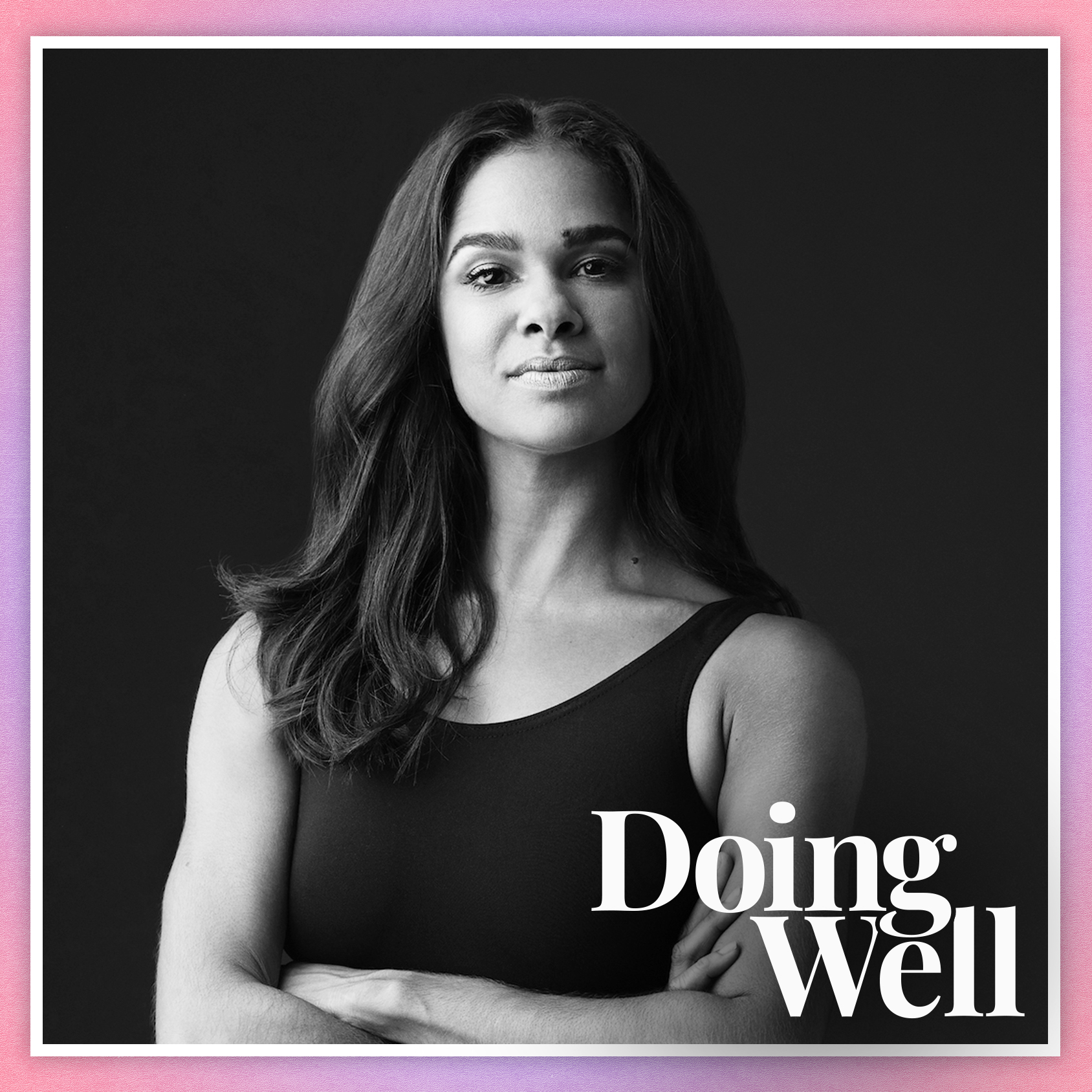
Misty Copeland is known for breaking boundaries. In 2015, she became the first Black ballerina to be promoted to principal dancer at the prestigious American Ballet Theatre. She has also narrated a documentary about her life, toured as a dancer with Prince, and appeared on reality television. On top of a busy career, Copeland juggles her roles as a mother and partner, and is constantly seeking ways of giving back to her community through means such as the Misty Copeland Foundation, which fosters increased diversity in the dance space.
"It's so much fun to be able to step outside of what's expected of a dancer and what a dancer's career can look like," says Copeland. "That it doesn't just have to be on a stage."
She's even ventured beyond her lifelong passion for performing, venturing into spaces such as nutrition and wellness in order to educate others about holistic well-being. Most recently, she's partnered with Optimum Nutrition, whose whey protein she calls "a safety net" that allows her to sustain herself "as a busy mom and athlete."
"I'm just constantly on the go," she explains. "For me to know that I'm going to get the protein I need every day, it's an important building block."
Ahead, I talk to Copeland about how else she manages to stay balanced and healthy on a day to day basis. Plus, she details her most valuable strategies for keeping sane, and how she re-centers on the craziest of days.
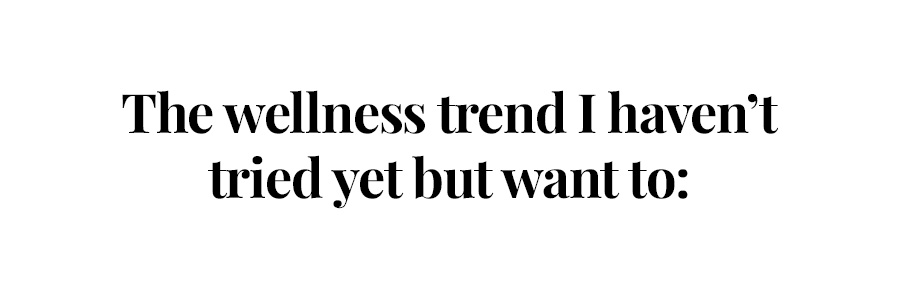
I'm so not a wellness trend girl. I've been a professional athlete—ballerina—for over 20 years, so I feel like I know my body well. And I feel like whenever I might dabble in something different or something new, it's really not a full-scale change type of thing. It's like, "What can I do that will enhance what I'm already doing?" Something that I feel like should have been important years and years ago, that I guess you could call it a trend, is the mental health focus, especially with athletes. 23 years ago, when I joined American Ballet Theater, it wasn't something that was really focused on. And so I would say the mental health trend is something that I'm just more conscious of, because being mentally prepared and rested is equally as important as the physical aspect of what I do as an athlete, but also as a mom and as a working woman.
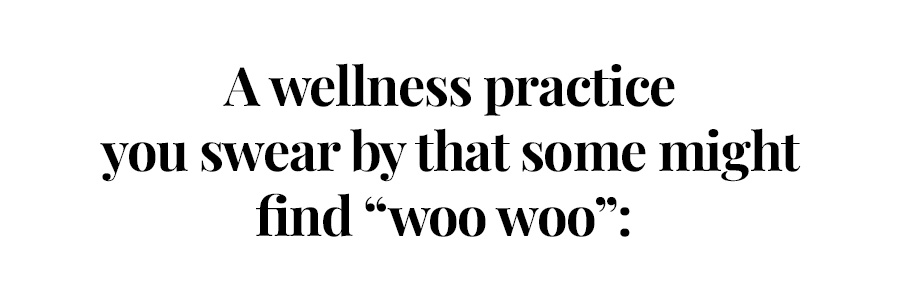
Maybe something that people might find a little woo-woo that I swear by is floor barre classes. I feel like people don't really know enough about it, but it's an actual training technique that was created a long, long time ago. And it's like doing a ballet barre, but you're laying on your back or your side or your stomach. It's really just kind of taking away all the weight of your body and gravity and just kind of laying and still working those same muscles that you would in a ballet barre class. But looking at it, people might be like, "What in the world are you doing?"
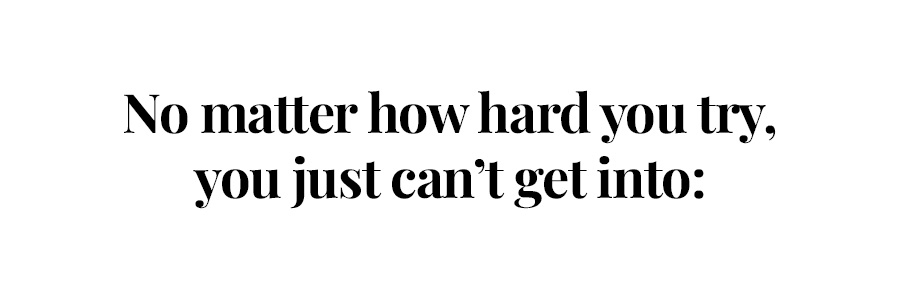
I've tried some things that are kind of out there, and I try and give things like a real chance. Cryotherapy is one thing that I've tried that people are probably like, "What are you doing?" I think overall it is doing good things for your body, but I didn't feel enough of a change. I literally gave it a year of trying cryotherapy. I would try it before I went to ballet class, I would try it after rehearsal, I would try it before a performance. And I know that it's good for inflammation and just getting the blood flowing, but I feel like it just wasn't something that really worked for me.
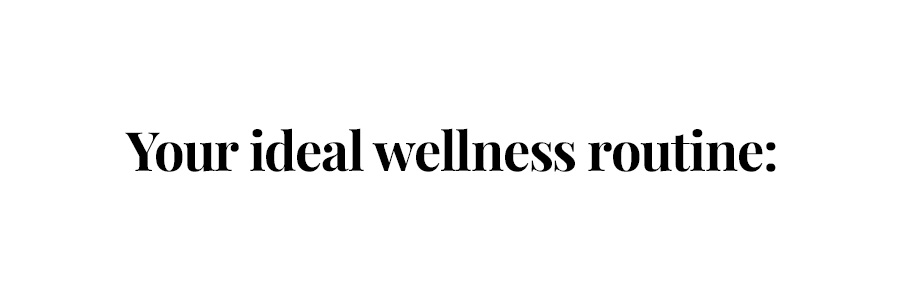
The most important thing is just listening to yourself and listening to your body and what you need, because I think that can differ day to day, depending on what you're doing. But I make sure that my body, my mind, and my spirit are all aligned and that it feels holistic.
Mornings I always set aside for my son. I have to have at least an hour just to set him up for the day and show him that I'm there. I may not be there for the rest of the day, or maybe I have to go and travel in the night, but I'm there with him in the mornings. That's how I always like to start my day.
Talking about brain breaks, it's just finding brain breaks to step away from all that I have to do, and finding a chance to move my body in some way throughout the day. That can range from a Pilates class or cardio or just stretching or taking a ballet class. But I think that it's also important to have meal planning, so that I can just open the fridge during the day and heat something up that I've actually made that's healthy and homemade, or make a quick protein shake. That's something that's super easy for me. And that can be a consistent thing throughout my days, no matter how it might change. And then dinner with the fam, I can just completely unplug.
So my routine changes up, but I make sure that I have a checklist of those things that are really important to me to keep my mind, body, and spirit aligned.
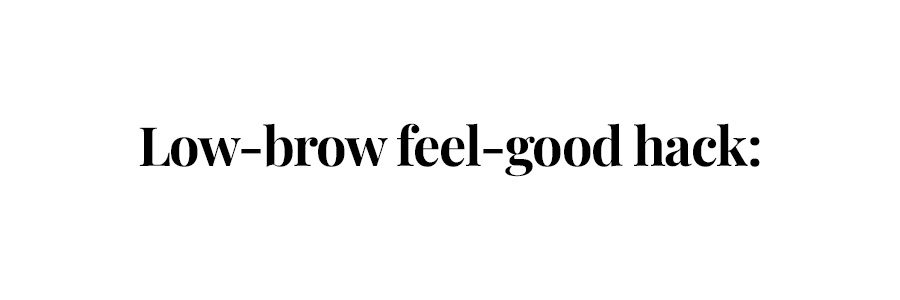
This sounds so silly, but sometimes an Uber ride is a good reset for me. And something as simple as hydrating and getting off my phone. Even with Optimum Nutrition, being able to make a Gold Standard protein shake in the Uber—you'd be surprised at all the things I can get done in the back of an Uber. But being able to do that reload, reset, fuel my body— something as simple as that, I think, is a good way to reset.
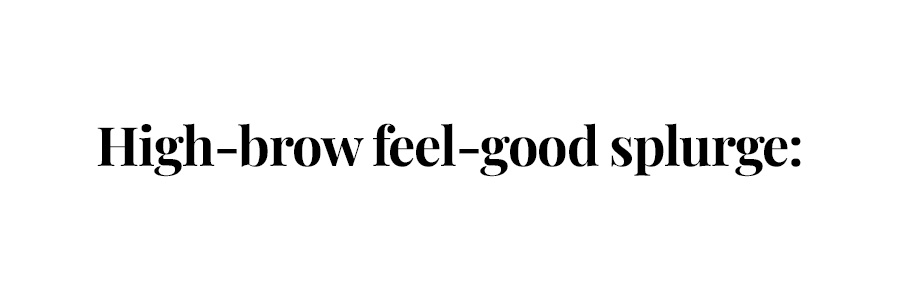
I have something that I've probably done for the last decade. I do it once a year, and it's usually in the midst of our most brutal, rigorous performance season, which is typically the summer season performing at the Metropolitan Opera House at Lincoln Center. On Sundays, I'll reserve a private room at the Mandarin Oriental, the spa treatment room, for me and my husband. And eat lunch, get spa treatments, have the private jacuzzi in the room. That's something that once a year, I'm like, "My body and my mind and my soul need this."
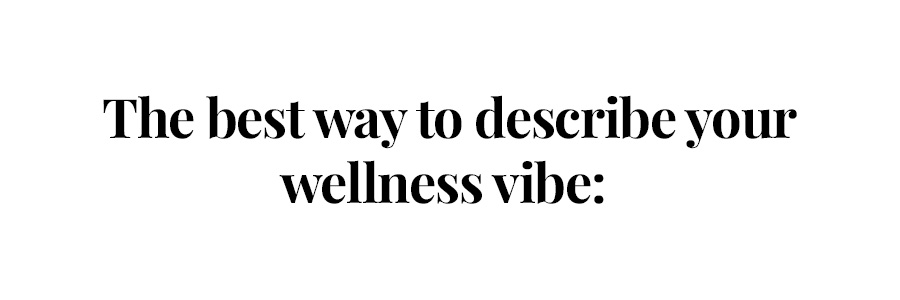
I would say I'm flexible. I would say that it's really important for me to remain open in terms of how I'm approaching wellness in my life, because things are constantly changing. I am a mom, I'm constantly on the go. I'm traveling. And so I think that I just have to be open to making changes.
And it's hard. I mean, I think some people work in a way where it's like you need consistency in your routine. My husband is that way. He's not good when we're traveling for vacation or something. He's like, "I need to be home so I can have this routine," but I can kind of adjust and make things happen no matter where I am. And I think that's how I thrive best is if I'm just kind of open and adjusting to the things that are happening around me. Especially having an almost two-year-old, you have to be able to think on your feet and shift.
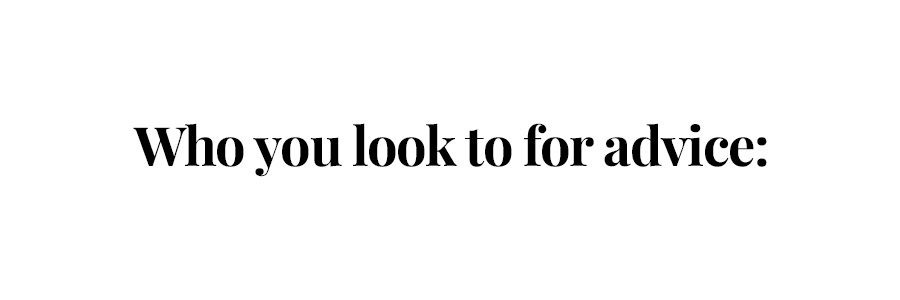
My husband is really great, a really great person to turn to. I think that he's pretty versatile in terms of the stuff he reads, especially about health and nutrition. He's just got a diverse way of thinking. And so he's always someone that's really good for me to turn to for advice. But of course my team, too. I've always been of the belief that you surround yourself with people that are smarter than you and that you can learn from. And so that mentee-mentor relationship is something that I'm always talking about and that's really important. Even within the teams that I'm building around me, whether it's my manager, the executive director of my foundation, my partner, or my production company. They're all incredibly strong women that are really intelligent and I can always go to for great advice.
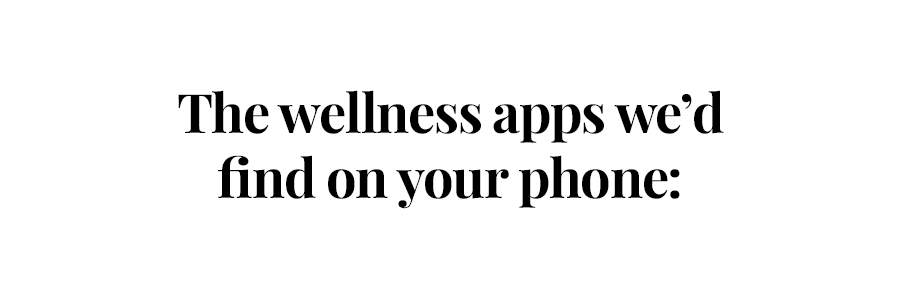
I'm so not tech-savvy, but one app that I've used for a while that's really good is Headspace. Just in terms of the focus and meditation and sleep—all of those things. That's one that I've leaned on for some time.
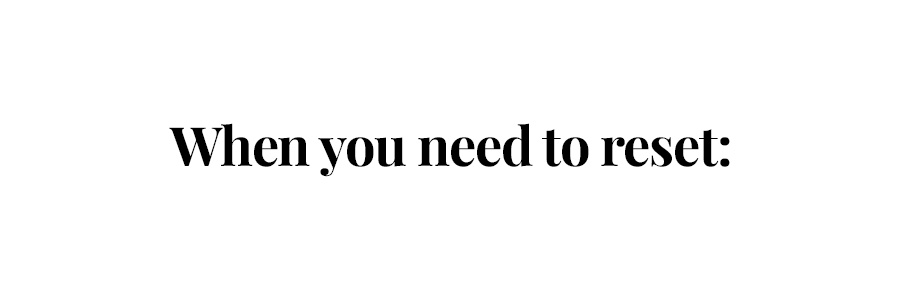
Resetting can look like so many different things. I think about a bigger picture of a reset, which can literally be like, "I am away and I'm traveling. I'm leaving." And when I get back to reality, I reasses what my routine looks like and try to find a new balance as to what might've not been working last time where I might've needed a reset. So that would typically stem from my sleep, my fitness and nutrition routine, and how work fits in and around all of that.
But if it's just like, "Oh, I need a daily quick reset within the day," I would just step away from what I'm doing; put the phone down. I think the priority is assessing my body. What is it that I need? Do I need to fuel my body in some way so that my mind can begin to optimize from the highest place that it can?
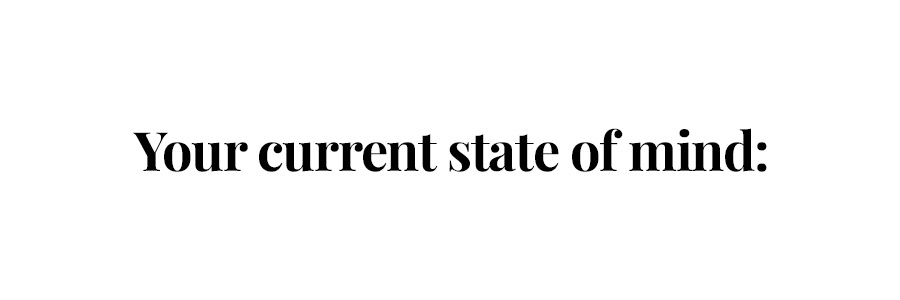
Right now, I feel like I'm really trying to take everything that I've learned as a dancer and as a ballerina and bring that to a variety of communities. I'm in this head space and mindset of education: arts education, ballet, dance education, even when it comes to health and nutrition. All of these things are really important to me within the Misty Copeland Foundation, all of these are components of our signature program, this free ballet class that we started. So I think that that's kind of the state of mind I'm in. It's like giving back. How do we make the next generation better and more than us? And just using everything that I've learned, all of my experiences—my personal and professional experiences—to give to others.
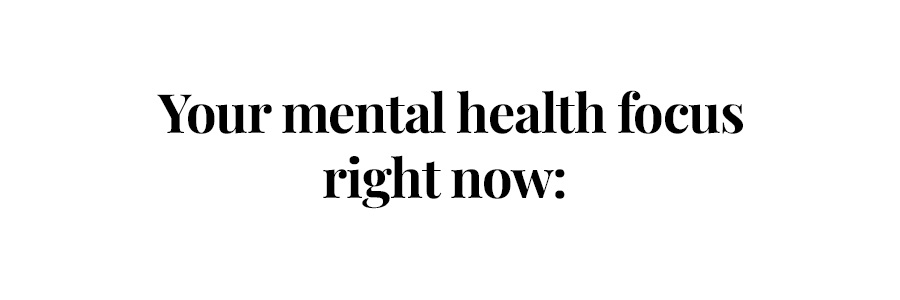
Just having brain breaks, and mentally being able to stop working when that time comes in the day. That has been hard for me throughout my career, especially when you have so many things you want to do, so many goals you want to achieve—it's hard to shut off, and you're willing to do whatever it takes, whenever. And I feel like I'm now in a place where, mentally, things just have to be more balanced if I'm going to be healthy and present enough to take care of another little being, as well as doing everything else that I'm doing within my career.
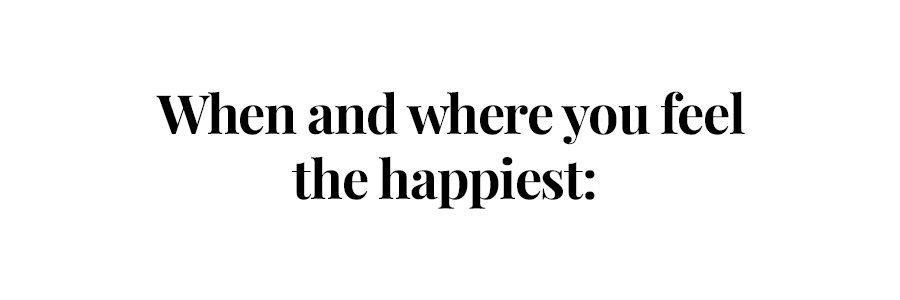
On a beach with my husband and my son, just chilling, listening to some Sade.
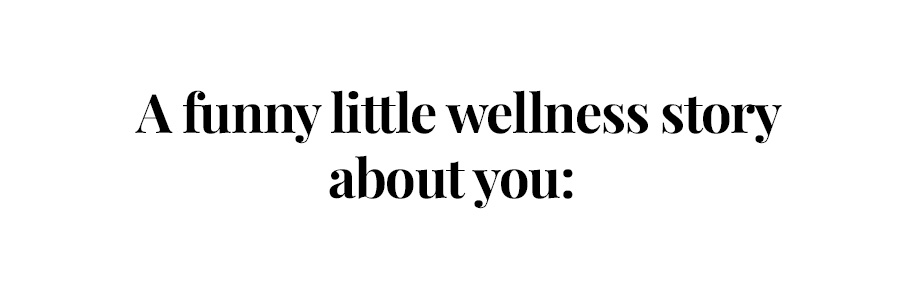
This might be funny to people, but I've tried barre classes a lot, and I feel like people look at me and they're like, "What are you doing in here? You're Misty Copeland. You're a professional ballerina." But I like to try things out and see why people are drawn to it or really trying to figure it out. I'm someone that just swears by a ballet class, and barre classes are not for me, but I understand why people love them so much. It's easier than committing to a full ballet class, which is something that you really have to put the time into in order to really understand what it is you're doing. A barre class takes a lot of those elements, but combines them with other cross-training tools. But I just think it's funny when people are like, "What are you doing here in this barre class?"
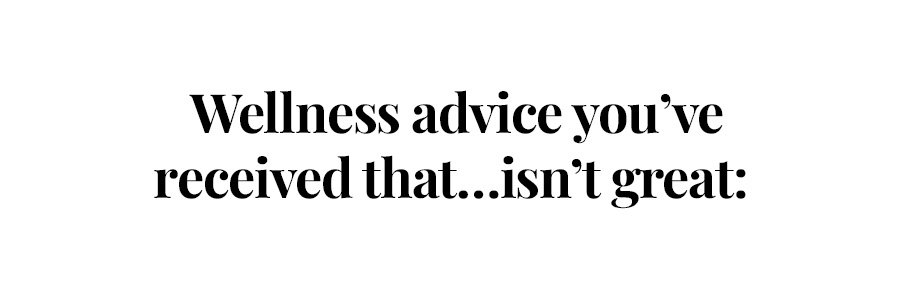
I've been told that it's the fitness part of what I do as a dancer that is most important. And to me that's so backwards, because diet is more than half the battle, and it's really about finding a balance. If your body is not being fueled, then you can't do the fitness. You can't excel in terms of the exercise and the physical aspect of what it is that I do as a dancer. And so that's something that I'm constantly telling young people: that those things are equally as important, and just to stay really well-balanced when it comes to the fitness and the diet.
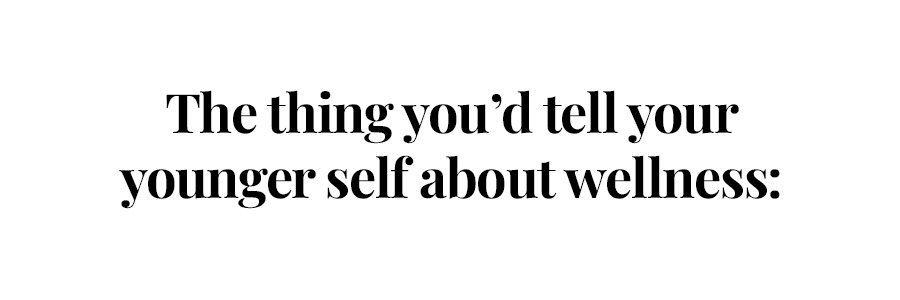
I think that it would just be to follow your own path and find your own way of being holistically healthy for you. It doesn't have to look like anyone else's journey. And that's really been this theme that I've lived by. I started dancing at a late age, at 13 years old. I wasn't promoted to principal dancer until I was 32, which is ancient. I was the only Black woman in my company for the first 10 years of my career. All of these things, they didn't look like this typical path for a dancer, for a ballerina. And so I feel like I apply that to everything that I do, that these things don't have to look like what other people are doing, but it's important to find what works for you.







